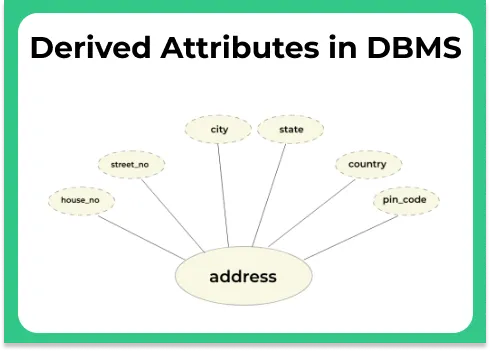0
Notifications Mark All Read
- Login
- Get Prime
Derived attribute in DBMS
Derived Attribute in DBMS
On this page, we will learn about Derived Attribute in DBMS.

Definition of a derived attribute
- A derived attribute data is derived (copied) from the attribute of another table
- The derived attribute value is always dynamic.
Example of a derived attribute
If you need to copy the age data from another table to the student table then and age attribute will become derived attribute in the student table
Representation of derived attribute
In the ER diagram, the derived attribute is represented by a dashed oval with a name inside the dashed oval
Derived vs Stored Attribute
[table id=996 /]
Prime Course Trailer
Related Banners
Get PrepInsta Prime & get Access to all 200+ courses offered by PrepInsta in One Subscription
Get over 200+ course One Subscription
Courses like AI/ML, Cloud Computing, Ethical Hacking, C, C++, Java, Python, DSA (All Languages), Competitive Coding (All Languages), TCS, Infosys, Wipro, Amazon, DBMS, SQL and others

 0
0




Login/Signup to comment